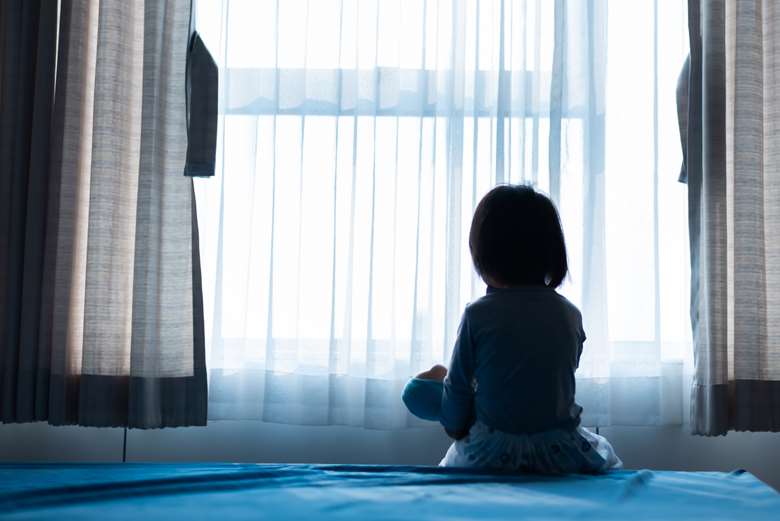Families struggling before lockdown face even more pressure after the coronavirus pandemic
Catherine Gaunt
Tuesday, June 16, 2020
Early years and education professionals are warning that the recovery phase from Covid-19 will have a knock-on effect for early help services for young children and their families.

A joint report from the Early Intervention Foundation and Action for Children, published on Tuesday, warns of a rise in the demand from families that don’t meet the criteria for support from statutory services, but are struggling to cope with the strain of lockdown, or the effects of previous support being withdrawn.
The report predicts a huge surge in demand for services, with many families seeking help who had not previously received support.
The findings are based on interviews with a range of professionals providing early help services between March and May this year.
Respondents included head teachers, managers, and directors of children’s services, representing local authorities, schools, not-for-profit organisations, and midwifery services from all nine regions of England.
Settings and school closures, social distancing measures and the lockdown have seriously affected the ability of services to support families, the report said.
While Covid-19 and early Intervention: Understanding the impact, preparing for recovery reveals services and communities pulling together during the crisis, it said that the impact of the pandemic on vulnerable children and families was likely to be profound.
It said that the situation will be made more challenging because it was difficult to predict exactly what the needs of families would be post-lockdown. The lack of face-to-face contact in recent months means that services may well have been less effective, despite the best efforts of councils and schools to maintain contact where possible and to innovate.
Only as the lockdown is more widely eased will the full extent of the impact of Covid-19 on children and families become apparent. This will almost certainly result in an increase in referrals to children’s social care and other specialist services, it said.
'The stark message from our interviews with heads of service, head teachers and practitioners was that the biggest challenges were yet to come,' it said. 'There was a widely shared view that this period would be hugely challenging for many families, and that the implications for them and for support services could be widespread and longlasting.
'Professionals suspected that there would be many families who had not previously been identified as vulnerable and who would not have accessed support during this time, either because they had not tried to, or because support had not been available. The assumption was that there would be a significant spike in early help and social care referrals once lockdown measures have eased and schools and early years provision reopened, and the full extent of what children have experienced starts to come to light.
'Increased investment in these services will be necessary to meet this need. Some were already preparing by increasing staffing capacity. Interviewees also told us that they anticipated a spike in demand for other specialist services, including mental health and domestic abuse services.'
Those interviewed recognised that it has become more difficult to ascertain which children have become more vulnerable, because some signs of abuse, neglect or domestic violence are much harder to spot without home visits or other face-to-face contact.
Dr Jo Casebourne, the EIF’s chief executive, said, ‘This work is important to our understanding of the pressures public services face, and how the country can navigate this recovery phase. The lockdown has had a negative impact on children and families, especially those that were struggling before the coronavirus hit.
‘We know there will be lots of calls for additional funding, including – rightly – for children’s social care and other acute services. But early intervention has a crucial role to play in providing support to a wider group of families and children wrestling with a wide range of problems in the wake of the lockdown.’
Head of policy and research at Action for Children, Eleanor Briggs, said, ‘The coronavirus crisis has exploded into the lives of vulnerable families after a decade of decline in central government funding for early help services that are designed to give all children the best start in life.
‘Our findings echo widespread fears across the children’s sector that our already hollowed-out services won’t be able to cope with further demand created by the pandemic. The right thing to do for children and young people is for the government to invest in early help services now, ensuring families get help before they reach crisis point.’
Respondents’ comments
‘Public perception [is] that actually it’s not safe to go into day care because the government has been very much ‘stay at home’. And so ... we have struggled to make them feel that it’s a safe place to be.’
‘They can’t ... physically get some of the children out the house or dressed, their behaviour is escalating. Because they haven’t got an Education, Health and Care Plan, then they’re not entitled to transport from the local authority – so that is a real barrier for these families.’ Early years inclusion officer, Yorkshire and the Humber
‘However challenging it is now, it won’t be nearly as challenging as when we start recovering.’ Headteacher, South West
‘In our school we have 90% of pupils who have language delay and I am very concerned about their development during this time.’ Primary head, North West England
‘I’ve got children on a Child Protection Plan who are now at home and not coming into school ... That’s really depressing and that’s what’s keeping me awake at night.’ Primary head, London




